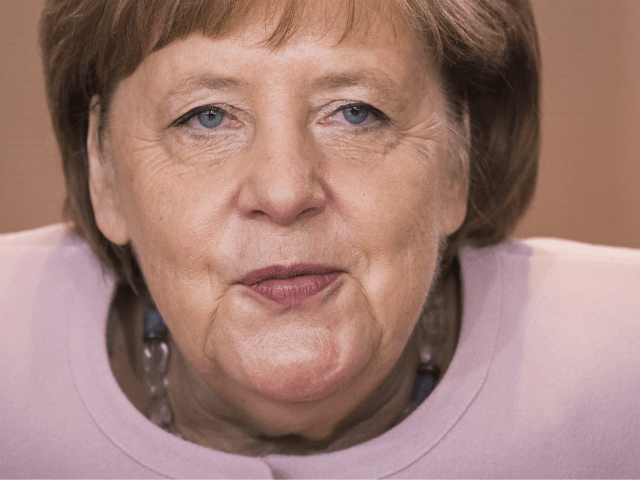A member of German Chancellor Angela Merkel’s Christian Democratic Union has said that the United Kingdom must extend the Brexit transition period because of coronavirus.
The chairman of the foreign affairs committee in the German parliament, Norbert Röttgen, said that Prime Minister Boris Johnson must agree to extend the transition period for up to two years to avoid the alleged economic damage caused by the coronavirus pandemic.
“Before the current coronavirus crisis, I think it would have been possible to have a minimum agreement with the UK on the broad outlines to avoid a crash [the UK leaving without deal], with more detailed negotiations then taking place afterwards.
“I can’t imagine now that this is possible, given the fact that all the EU countries, Brussels and London are so absorbed by the pandemic – and this will go on. Given this situation, I don’t believe that there is a realistic possibility any longer to even achieve the necessary minimum. So you have to extend,” Mr Röttgen told The Observer on Sunday.
The UK has until June 30th to agree to an extension of the transition period; however, the British government has passed a law making it illegal to extend the Brexit deadline beyond December 31, 2020. Boris’s government has previously said that if sufficient progress is not made on a deal by June, it would pull out of negotiations and prepare for an orderly move onto a World Trade Organization (WTO) relationship with the bloc in time for 2021.
Germany, which is due to take over the sixth-monthly-rotating presidency of the Council of the European Union on July 1st, will be pressing for the transition period to be extended, according to a Monday report in The Times.
Mr Röttgen also told The Guardian‘s Sunday sister newspaper: “The pandemic will cause more economic damage than we can now imagine. To think that you could then add to this extraordinary situation a very disorderly exit, to me is not imaginable. I think everyone will say that this is not in the British interest or in the interest of any of us.”
However, European sources speaking to the media and commentators have suggested that the UK leaving the EU’s institutions at the end of the transition period without a deal would make little difference, as any economic impact would likely be absorbed into the wider conditions created by the coronavirus crisis.
A diplomatic source told The Times last week that several European countries have actually said that delaying Brexit would not make economic sense for the United Kingdom.
“Any disruption to trade if the deal is not negotiated by the end of the year will be buried. Negative effects of the exit from the single market are now cushioned in the wider context of the corona crisis” the diplomat said, remarking that the Single Market is “basically suspended now anyway”.
The source added: “So it’s probably the best situation they could hope for to get this done. Why not take the hit now and bank on any unilateral EU or bilateral national measures to alleviate the worst effects? And then trust that a modern service economy will come out of the crisis quicker than the more traditional economies of the eurozone.”
German journalist and associate editor of the Financial Times Wolfgang Münchau made similar observations in The Spectator last week that the “costs” of no trade ideal has “already been incurred”.
“Lockdown has in any case already seen countries all over Europe tear up the fundamental principles of the single market, such as freedom of movement of people and of non-essential goods. Borders have been closed,” Mr Münchau wrote.
He continued:
So if Brexit talks do not end in a deal, it would be less of a jump to adopt the rules of the World Trade Organisation now than it would have been before. Most of the supply chain disruptions have already occurred. A WTO trading relationship would mean Britain applying tariffs (averaging 4 per cent). In normal times, this would have some noticeable economic impact: prices would rise and the volume of many imports and exports would fall. But compared to the great lockdown, the effect of a WTO Brexit is small. If the two were to be folded together, the economic effects would be hard to disentangle.
